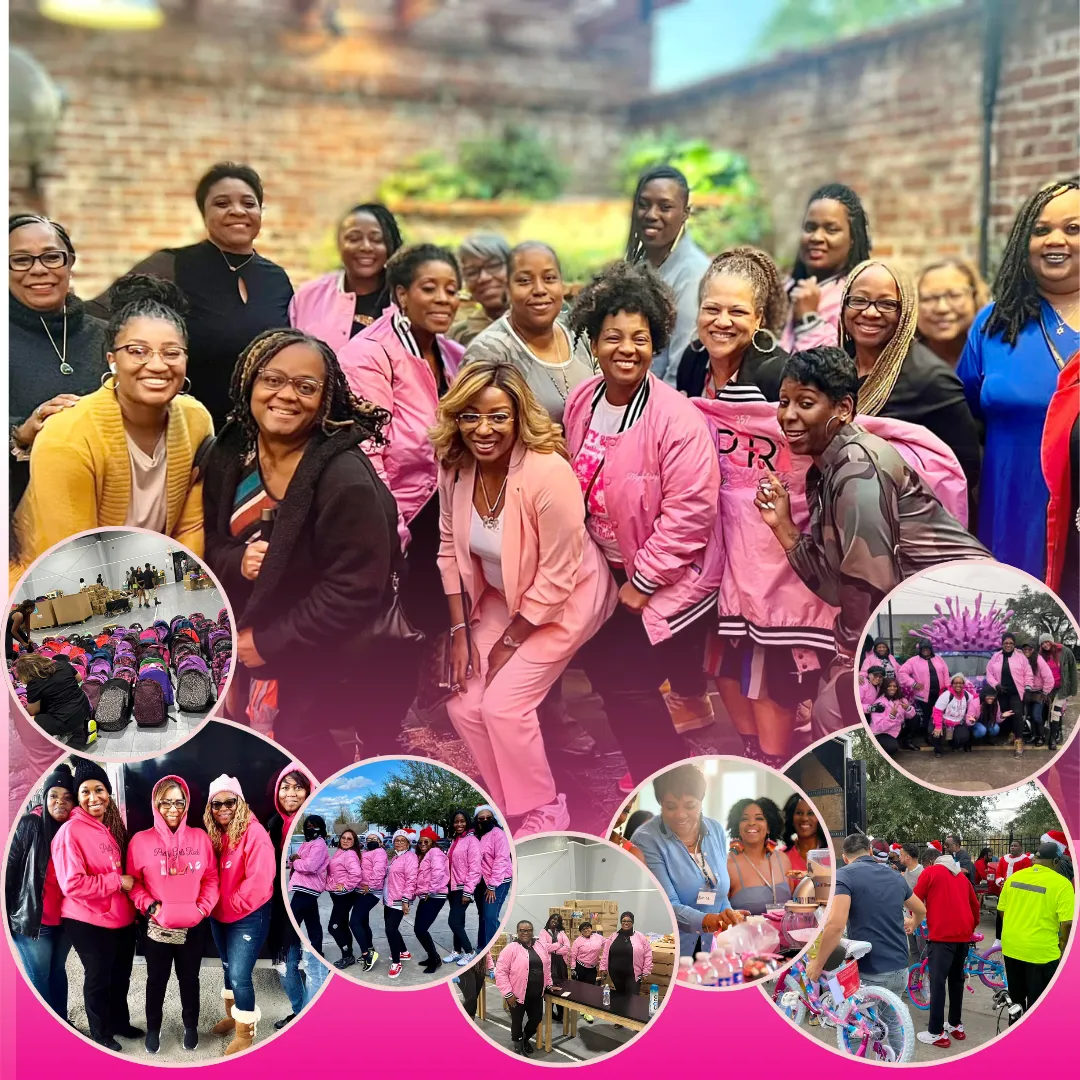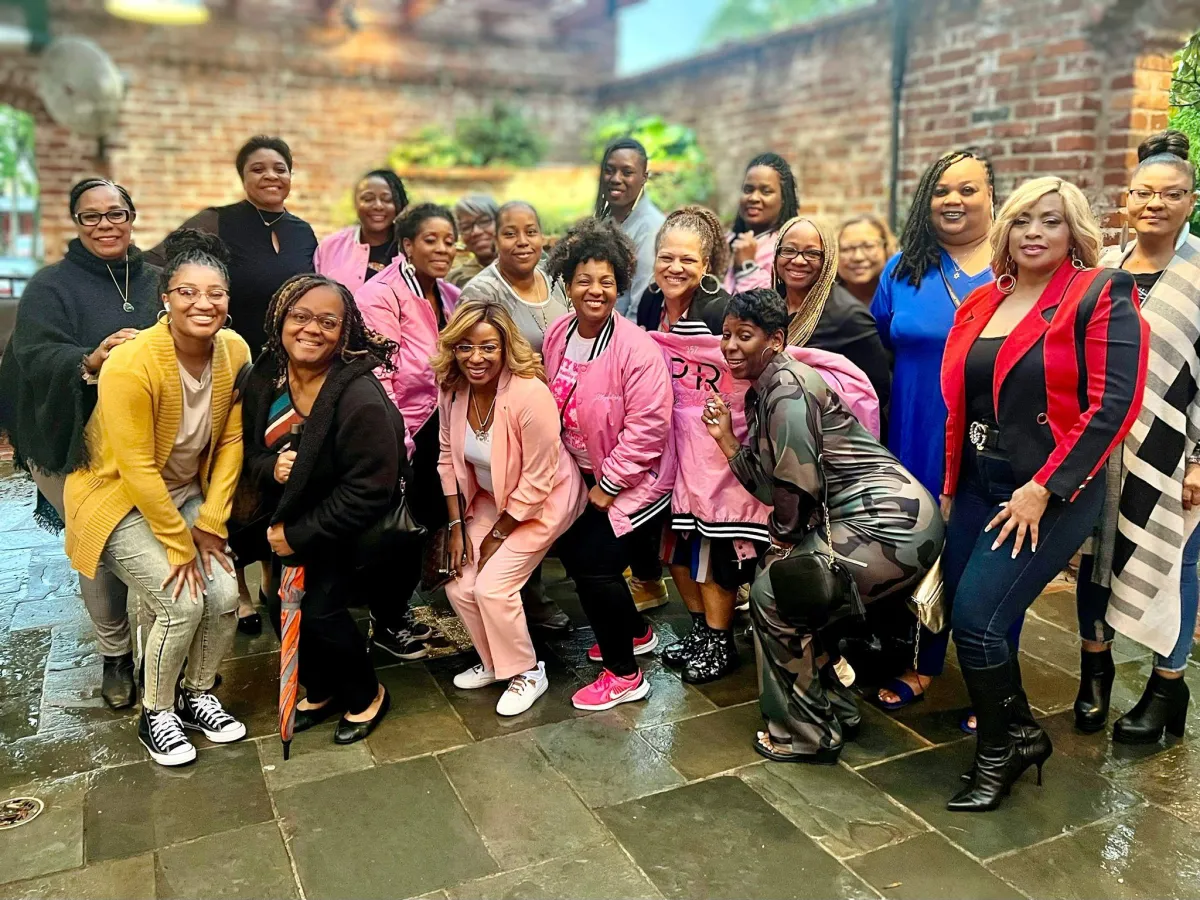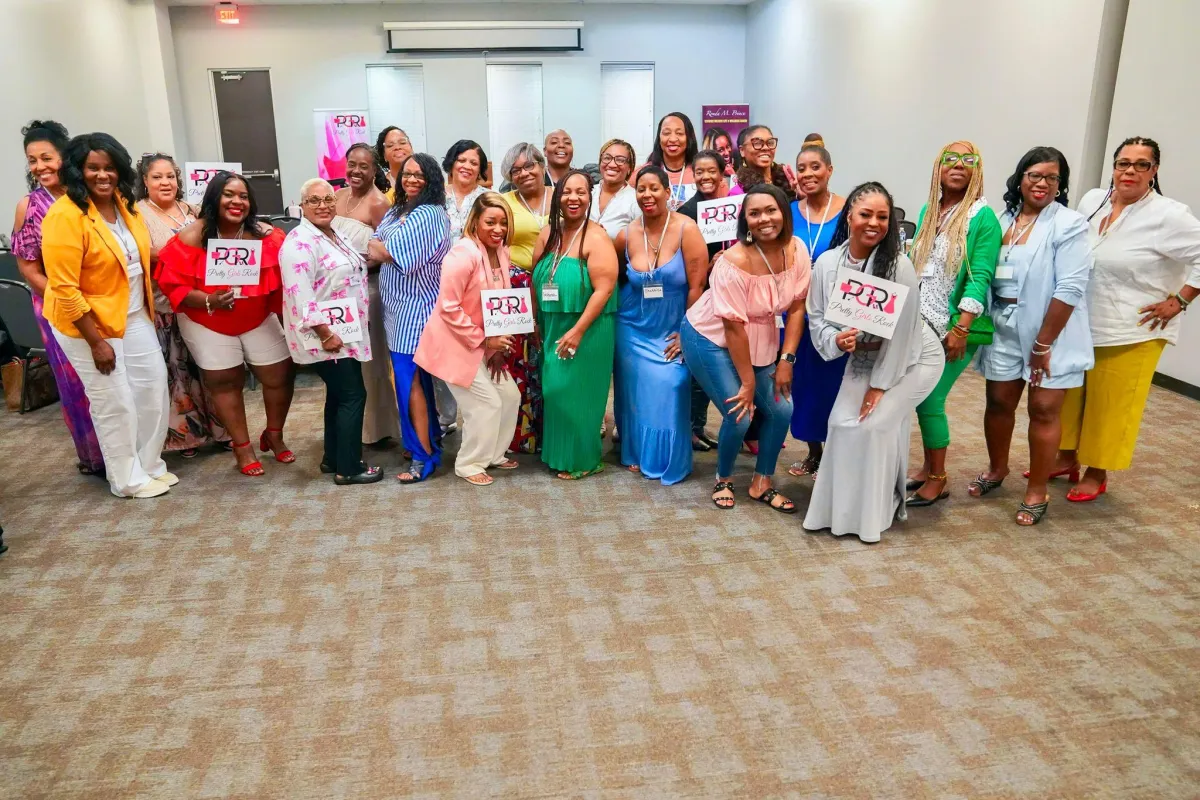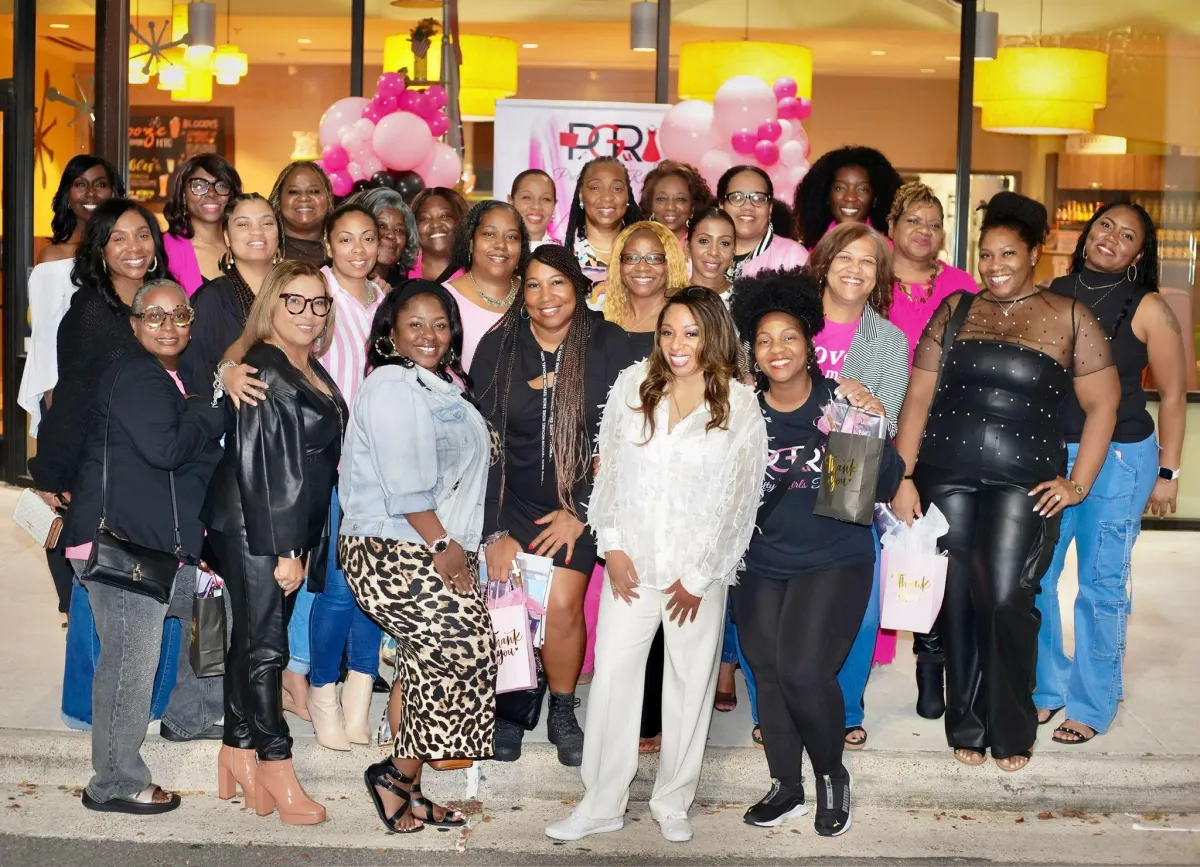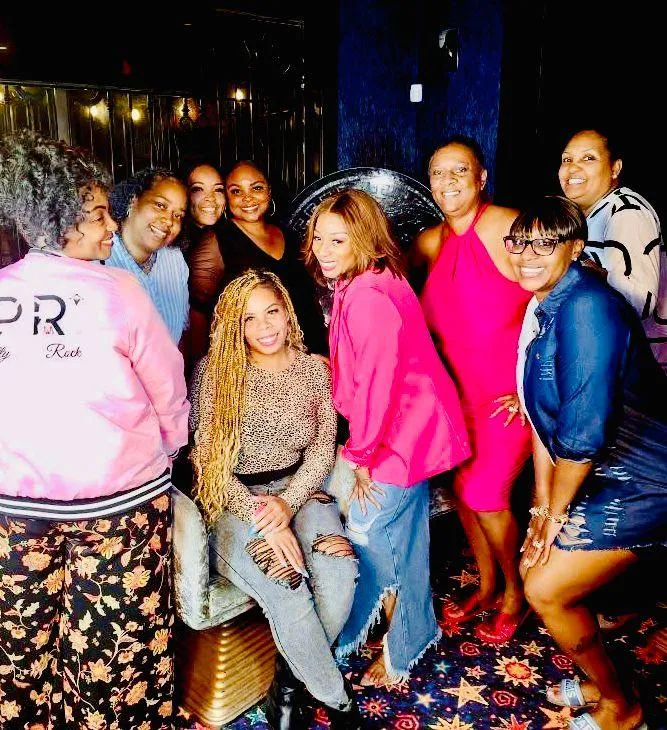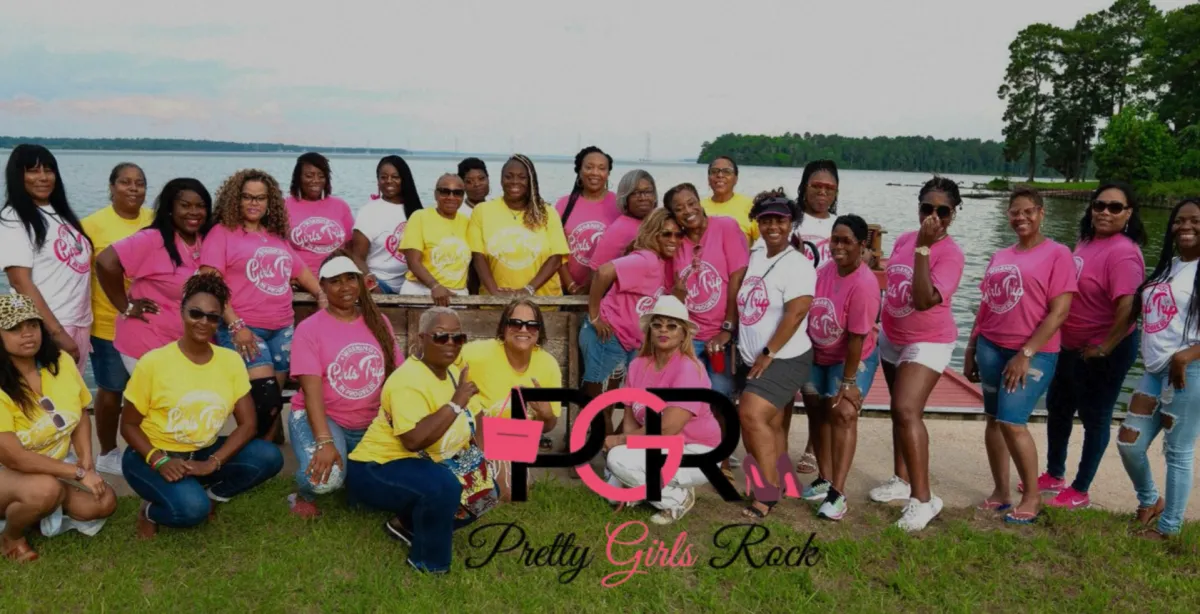
Join Our Email List | Account Log-In

Join Our Email List | Account Log-In



We Ignite something in you that causes you
to Believe in yourself and Believe in others.


We give Support, Confidence and Hope to
help you keep going forward.
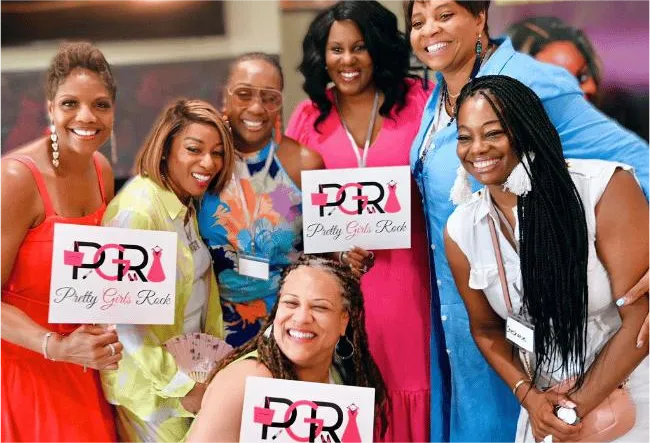

At our women's development program, we strive to foster growth and innovation for all female members of society. We offer you the freedom to be your best you.



We Ignite something in you that causes you to Believe in yourself and Believe in others.


We give Support, Confidence and Hope to
help you keep going forward.


At our women's development program, we strive to foster growth and innovation for all female members of society. We offer you the freedom to be your best you.

Genuine. Loving. Supportive. True Sisterhood. True Sisterhood.
We’re building more than a community—we’re creating a sacred space where strong, beautiful women show up for each other, grow together, and make a real difference in the world.
Pretty Girls Rock is proud to be a part of Houston’s women empowerment movement. Through mentorship programs, skill-building workshops, and transformational events, we empower women and young girls to rise—confident, equipped, and connected.
From discovering your voice to building your confidence and embracing your gifts, PGR is here to remind you that you’re not alone on this journey.
Why Women Love Pretty Girls Rock:
It’s a place to be seen and supported—not judged.
It’s where dreams are revived, and real friendships are born.
It’s a platform where your business, profession, or calling can be shared with sisters who truly want to see you win.
We don’t just gather—we grow.
We are a sisterhood rooted in healing, purpose, joy, and truth.
We Are The B.L.O.C.K.
Beautiful Ladies Overcoming Challenges with Klass.

Genuine. Loving. Supportive. True Sisterhood. True Sisterhood.
We’re building more than a community—we’re creating a sacred space where strong, beautiful women show up for each other, grow together, and make a real difference in the world.
Pretty Girls Rock is proud to be a part of Houston’s women empowerment movement. Through mentorship programs, skill-building workshops, and transformational events, we empower women and young girls to rise—confident, equipped, and connected.
From discovering your voice to building your confidence and embracing your gifts, PGR is here to remind you that you’re not alone on this journey.
Why Women Love Pretty Girls Rock:
It’s a place to be seen and supported—not judged.
It’s where dreams are revived, and real friendships are born.
It’s a platform where your business, profession, or calling can be shared with sisters who truly want to see you win.
We don’t just gather—we grow.
We are a sisterhood rooted in healing, purpose, joy, and truth.
We Are The B.L.O.C.K.
Beautiful Ladies Overcoming Challenges with Klass.

OUR STORY
Pretty Girls Rock is a private women - only club founded by Ronda Prince in Houston, Texas. Ronda's mission is to create an environment that helps women connect, be inspired and thrive. Membership gives you access to a sanctuary full of amazingly diverse women from professionals to creatives and entrepreneurs.
Meet the 2025 Official Pretty Girls Rock Members
A sisterhood like no other—watch as we honor the powerful women who make our community shine this year.
Meet the 2025 Official Pretty Girls Rock Members
A sisterhood like no other—watch as we honor the powerful women who make our community shine this year.

OUR STORY
Pretty Girls Rock is a private women - only club founded by Ronda Prince in Houston, Texas. Ronda's mission is to create an environment that helps women connect, be inspired and thrive. Membership gives you access to a sanctuary full of amazingly diverse women from professionals to creatives and entrepreneurs.


Mastering Work-Life Harmony for Working Moms
Balancing Act
Read More →

Breaking Free from Imposter Syndrome
Embrace Your True Worth
Read More →

Networking with Purpose
Building Authentic Connections for Career Growth In the world of professional advancement, one thing remains constant: the importance of networking. We've all heard
Read More →

The Art of Self-Care
Prioritizing Your Well-Being in a Busy World In today’s fast-paced world, where we are constantly juggling multiple responsibilities, the idea of taking time out for self-care can
Read More →

From Dream to Reality: How to Set and Achieve Your Biggest Goals
A step-by-step guide to turning your aspirations into achievable milestones and celebrating your journey to success.
Read More →

Unleash Your Potential: 10 Habits of Highly Successful Women
Explore the daily practices and mindsets that propel women to new heights in their careers and personal lives.
Read More →

Equality at Work: Strategies for Bridging the Gender Pay Gap
Despite progress in women's rights and workplace equality, the gender pay gap remains a persistent issue in today's society. Bridging this gap requires proactive efforts and effective strategies to advocate for p..
Read More →

From Dream to Reality: How to Set and Achieve Your Biggest Goals
Confidence is not just a desirable trait—it's a fundamental key to success in the workplace. Yet, many individuals, especially women, grapple with self-doubt and insecurities that..
Read More →

Leadership Unveiled: Women Redefining the Corporate Landscape
In recent years, there has been a noticeable shift in the corporate world as more women ascend to leadership positions and redefine traditional notions of leadership. From boardrooms to executive suites, wom..
Read More →
Rise Together, Thrive Together
Your monthly source of inspiration—from self-care and goal-setting to leadership and sisterhood—designed to help every woman be seen, heard, and empowered.
No blogs found

Mastering Work-Life Harmony for Working Moms
Balancing Act
Read More →

Breaking Free from Imposter Syndrome
Embrace Your True Worth
Read More →

Networking with Purpose
Building Authentic Connections for Career Growth In the world of professional advancement, one thing remains constant: the importance of networking. We've all heard
Read More →

The Art of Self-Care
Prioritizing Your Well-Being in a Busy World In today’s fast-paced world, where we are constantly juggling multiple responsibilities, the idea of taking time out for self-care can
Read More →

From Dream to Reality: How to Set and Achieve Your Biggest Goals
A step-by-step guide to turning your aspirations into achievable milestones and celebrating your journey to success.
Read More →

Unleash Your Potential: 10 Habits of Highly Successful Women
Explore the daily practices and mindsets that propel women to new heights in their careers and personal lives.
Read More →

Equality at Work: Strategies for Bridging the Gender Pay Gap
Despite progress in women's rights and workplace equality, the gender pay gap remains a persistent issue in today's society. Bridging this gap requires proactive efforts and effective strategies to advocate for p..
Read More →

From Dream to Reality: How to Set and Achieve Your Biggest Goals
Confidence is not just a desirable trait—it's a fundamental key to success in the workplace. Yet, many individuals, especially women, grapple with self-doubt and insecurities that..
Read More →

Leadership Unveiled: Women Redefining the Corporate Landscape
In recent years, there has been a noticeable shift in the corporate world as more women ascend to leadership positions and redefine traditional notions of leadership. From boardrooms to executive suites, wom..
Read More →


Join the Sisterhood!
Pretty girls are ladies in service making a difference while also supporting and loving on each other.


Join the Sisterhood!
Pretty girls are ladies in service making a difference while also supporting and loving on each other.



